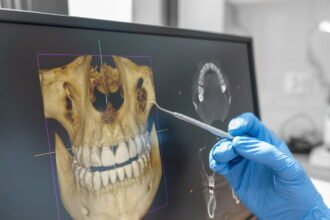The Institute of Medicine report on medical device regulation released two weeks ago called for scrapping the 510(k) process that allows for market entry of new devices if they’re shown to be “substantially equivalent” to already marketed devices. In a Perspective in today’s New England Journal of Medicine, committee members David R. Challoner, M.D. of the University of Florida and William W.
The Institute of Medicine report on medical device regulation released two weeks ago called for scrapping the 510(k) process that allows for market entry of new devices if they’re shown to be “substantially equivalent” to already marketed devices. In a Perspective in today’s New England Journal of Medicine, committee members David R. Challoner, M.D. of the University of Florida and William W. Vodra, J.D., an attorney at Arnold & Porter, reiterated the reasoning of the report:
Today, we have a system in which a new moderate-risk device can enter the market because it is substantially equivalent to another device that may have been cleared for marketing 2 years ago because its manufacturer showed that it was substantially equivalent to yet another device cleared in 2003, and so on, all the way back to a device that was being marketed when the law was enacted in 1976. But that original device might never have been assessed for safety or effectiveness, nor perhaps would any subsequent ones in the family tree. . . We decided that the 510(k) process cannot be transformed into a premarketing evaluation of safety and effectiveness as long as the standard for clearance is substantial equivalence to a previously cleared device.
Alas, the Food and Drug Administration immediately rejected the committee’s conclusion that the entire process be scrapped. In a second Perspective, Gregory D. Curfman, M.D., and Rita F. Redberg, M.D., editors at NEJM and the Archives of Internal Medicine, respectively, lamented the FDA’s position and offered an alternative approach. They wrote:
- The 510(k) process, if not abolished entirely, should at least never be used in class III devices, defined as those whose failure would pose an immediate risk to health or safety. These would include most implanted orthopedic and cardiovascular devices that are of most concern;
- Ban the use of multiple predicate devices; and
- Adopt a formal system of postmarketing surveillance for medical devices that includes registries to track device performance and their medical outcomes, careful tracking of patients, and mandatory disclosure of postmarketing safety data.
The FDA shouldn’t cave into industry pressure to abandon the report. The agency should use it as a stepping stone to adopting reforms along the lines recommended by Curfman and Redberg.
Collection of comprehensive data on device performance will have ramifications far beyond the safety issues that triggered the IOM’s reevaluation of the 510(k) process. It will provide critical information that will allow patients, physicians and payors to determine the relative value of new devices, which are always more expensive than the ones they replace. In the coming era of cost-controlled medicine, it makes no sense to pay for unproven “improved” devices.







